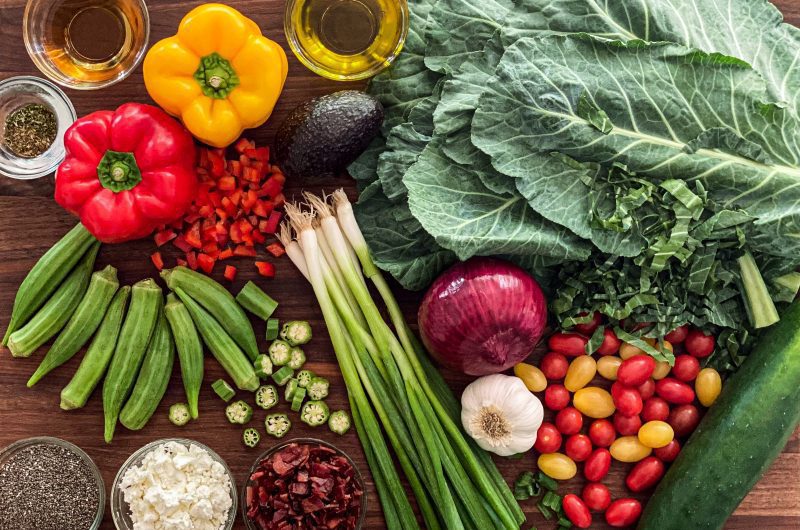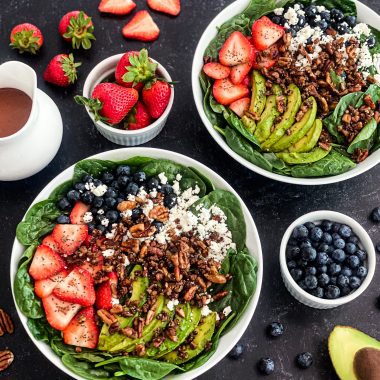I recently gave a nutrition-focused cooking class in celebration of the newly established federal holiday, “Juneteenth.” When initially asked, I almost immediately knew what I wanted to do – and it was not the same old cookie cutter conversation about good nutrition for good health. That would’ve been much too easy.
Instead, I wanted to showcase easy and creative ways to put a fresh and healthy spin on traditional African American cuisine, better known as “soul food.”

When we think of soul food, healthy is generally the last adjective that comes to mind. Though many staple soul food ingredients offer quality nutrients, the preparation methods are where good nutrition falls by the wayside. There’s a science to good nutrition. Soul food, however, is profoundly interwoven with culture – whether it be cultivating it, cooking it or just eating it.
As with other cultural cuisines, soul food itself is comforting food. Deeply rooted in tradition, it’s very rich and flavorful. The unique combinations of salty, sweet and savory staples can satisfy practically every taste bud. Soul food cooking is truly a culinary art form.
Creation from Nothing
Soul food evolved from the genius of African slaves who took mere table scraps and turned them into sheer delicacies. They actual made pig intestines (or chitterlings) craveworthy! Though I don’t eat chitterlings, I’d be remiss if I didn’t admit that I do enjoy my fair share of smothered chicken, baked mac and cheese, candied yams, collard greens and corn bread on occasion.
These are the foods I grew up eating and eventually learned to prepare for myself and my family.
Nevertheless, we can’t escape the fact that many of the traditional foods and preparation methods of our ancestors are less than ideal, particularly when it comes to disease prevention and overall good health.
When it comes to preparing soul food ingredients like collard greens, for instance, the prolonged cooking process strips away many of the potentially valuable nutrients. Not to mention all the added salt owing to smoked meats and other sodium-dense flavor-enhancers.
Truth is, a large majority of the diseases that now plague the African American community have strong linkages to the ways in which we’ve historically prepared and enjoyed our foods. Since slavery, our lives have improved for the better, but, unfortunately, our health has not.
So, when asked to present a nutrition-focused cooking class to commemorate Juneteenth, I came up with the concept of “Celebrating Soul in a Salad Bowl.” What better way to celebrate true freedom than by celebrating the true liberty to live our healthiest possible life? Good nutrition is indeed an enabler of a healthier life.

Improving on Tradition
As That Salad Lady, my primary goal is for all people to experience and appreciate the health and nutritional benefits of regularly eating plant-based foods, especially in raw form. And so, for my cooking class, I decided to incorporate traditional soul food ingredients into a largely raw food meal. This was my way of honoring African American tradition with good nutrition.
Eating even moderate amounts of raw plant-based foods can make a world of difference in our overall health and wellness.
Given that collard greens are a classic soul food ingredient, and one of my personal favorites, I put them at the forefront of my cooking class — yes, I prepared a raw collard green salad as pictured above (check out the recipe). If you’re a fan of soul food, you’re probably thinking, “WTF?” I see it as building upon a rich African American tradition.
In the midst of trying times, soul food offered valuable sustenance and flavor. But times have changed, and so have we.
I’ve made a personal decision to honor my ancestors by preserving my own personal health and the health of my family. Maintaining and supporting good nutrition is one of the easiest and most approachable ways to do this. While I still enjoy that rich and flavorful soul food from time to time, I treat it as the delicacy it is. I’m sure my ancestors wouldn’t have it any other way.






